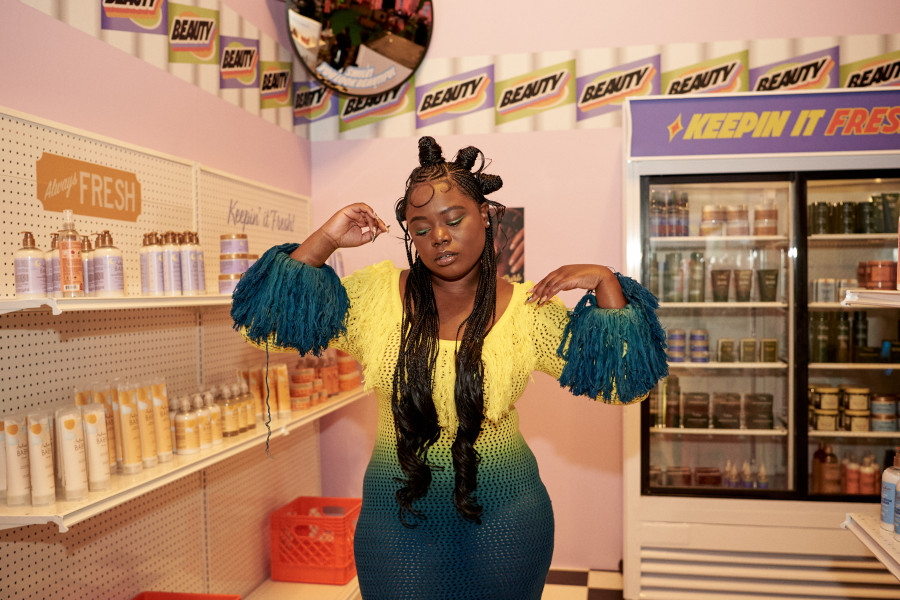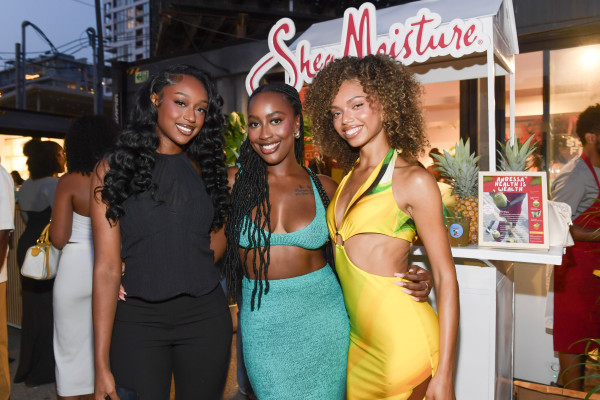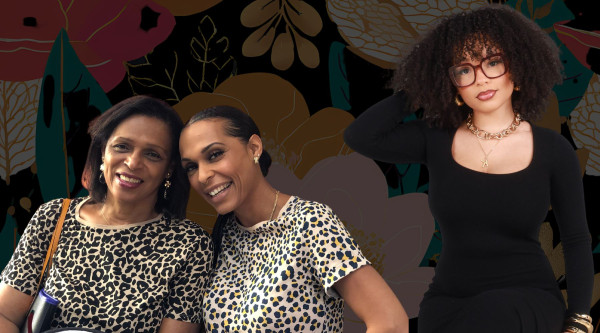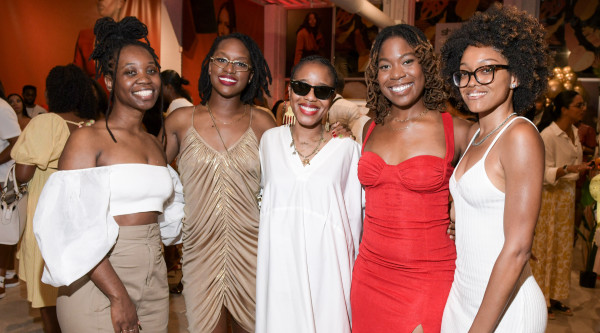The funny thing is, I wasn’t in Harlem — I was in New Orleans for the 29th annual Essence Festival. And it wasn’t a real bodega — it was a pop-up activation created by SheaMoisture. What was authentic was the energy of the Black women who laughed through the carefully constructed aisles of the simulated bodega. They exemplified the beauty, sisterhood, and community-focused sentiments of the moment — emblematic of not just the vibe of Essence Festival, but of SheaMoisture’s outlook in the beauty world.
When we think about brand growth, consumer loyalty, and the feat of supporting demographics that have historically been ignored — hair and beauty brand SheaMoisture is the perfect case study.
The brand started through the entrepreneurial spirit of a Black woman named Sofi Tucker in 1912, and over a century later, SheaMoisture is showing how it continues to centre Black women. Despite recent missteps and business-based growing pains, the company is letting the world know it hasn’t forsaken the community at the core of its success.
For any company looking to reach the prized demographic of Black women and our purchasing power, Essence Festival is the place to be. It was the perfect venue for SheaMoisture to create a love letter to us and remind the world of its origins — but the synergies go even deeper. Let’s take a step back.
In 1912, Sofi Tucker started selling shea butter, black soap, and other handmade beauty products in Bonthe, Sierra Leone. As the years passed Sofi’s work became a family business, with even her grandchildren learning the trade. When civil war broke out in Liberia and Sierra Leone some of Sofi’s family relocated to the U.S., bringing the business with them. In 1991, Sofi’s grandson Richelieu Dennis and his sister started selling their grandmother’s products in Harlem, New York — and soon after that, with the support of family and Dennis’ college roommate Nyema Tubman, SheaMoisture was born. As founder and CEO, Dennis built SheaMoisture into a brand dedicated to Black women, and the company’s success skyrocketed.
{https://www.youtube.com/watch?v=g1CgTmCDDlM&list=PLHOad-3msVTG2ydmJgS-Jp4Fdf7bZPbOn}
Dennis went on to become co-founder of Sundial Brands, the parent company of SheaMoisture and other Black hair and beauty brands. In late 2017, Unilever acquired Sundial, which meant SheaMoisture was now part of the global company and no longer “Black-owned”. But Dennis stayed on as CEO and Executive Chairman and also used the deal to create the New Voices Fund, with an initial investment of $50 million (USD) to support women of colour entrepreneurs. A few months later at the top of 2018, it was announced that Time, Inc. was selling Essence — both the magazine and the lifestyle brand — to Dennis.
Read This: 5 Black Businesses Win Big With SheaMoisture Canada's Dream Fund
This brand acquisition wasn’t the only big shake-up for the company. Around the time of the Unilever sale, a SheaMoisture ad featuring 3 white women and a light-skinned woman with loose curls blew up on social media. In the ad, these women spoke about “hair hate” like waking up with bed head or growing up with red hair. This was a drastic departure for the brand and the demographic of Black women who built its success. Black women were vocal about their feelings of displeasure and being abandoned by a brand they had always been loyal to. SheaMoisture responded swiftly, acknowledging that they “f’ed up,” and a number of leadership changes were made.
In the years since “Hate Gate,” as it was called, SheaMoisture has worked to cement itself as a brand undeniably for Black women. Maureen Kitheka, brand manager for SheaMoisture Canada, reiterates this sentiment as we sit on the stoop in imaginary Harlem.
“We are here to overserve the underserved, and that will never change.” The brand’s marketing strategy has centered Black women unapologetically, and SheaMoisture Canada has led a number of promotional initiatives geared towards Black women, including during Toronto’s Caribbean Carnival season. While in New Orleans, we were treated to the pop-up featuring a vendor site for Black entrepreneurs, a fully stocked hairstylist and barber bar, and activations run for and by the brand’s prime audience: Black women. The Black girl love affair continued with a SheaMoisture dinner hosted by Bevy Smith and an afterparty where we were ushered in by a New Orleans second line — a parade through the streets accompanied by a brass band and costumed masqueraders.
{https://www.instagram.com/p/Cum3Vs9pU4I/?hl=en}
SheaMoisture is no longer Black-owned, but will remain Black founded and is currently run by Black women in its top executive positions (Cara Sabin is Sundial’s new CEO). Kitheka notes that the support of women like Sabin and Taydra Mitchell Jackson, Sundial’s Chief Marketing Officer has assisted her in driving the company forward in Canada. And there are big plans for SheaMoisture Canada — a number of products were featured in the Harlem bodega pop-up that are slated to be released within our borders in the next year.
The saying goes that you have to know where you’ve been to know where you’re going, and SheaMoisture hasn’t shied away from that. In speaking with Kitheka about the brand’s previous marketing blunders and how it’s bounced back, she notes that the best thing to do in order to move forward is to acknowledge the past. “We owned that mistake,” she explains. “We’re focused on our product, but also on our purpose — and that has always been to serve the Black community.” Noting that women of other ethnicities still flock to the brand for their hair care needs, Kitheka says the brand is happy to be of service and is grateful for the support, but one truth will always prevail: “Everyone can purchase our products, but SheaMoisture will never stop saying that we are here for Black women.”

 By
By 






